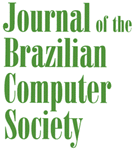Abstract
Personalization is a key factor for differentiating services and retaining customers in World Wide Web sites. On the other hand, designing and implementing an efficient personalization strategy is still a challenge, because of the complexity of the techniques used and the variety of sites and customers, which are always evolving. This paper presents a functional model of personalization strategies that allows not only a simple and concise specification of those strategies, but also their simulation and validation. We demonstrate our model through e-Personal, a framework for estimating the effectiveness of personalization strategies. The framework guides the user through the process of specifying a strategy and estimates its impact based on previous interactions of customers with the site. It is based on our functional model and we illustrate its utilization for designing personalization strategies for a web portal. Our experiments are based on actual logs and show that the proposed framework enhances significantly the personalization process, indicating the goodness of the strategy design, the reliability of input data, and the impact of implementation decisions on the effectiveness of personalized sites.
Personalization; Adaptive Web Sites; World Wide Web
Full text available only in PDF format
ARTICLES
Modeling web site personalization strategies
Fabiana Ruas; Wagner Meira Jr.; Paulo Araújo; Flávia Ribeiro
e-SPEED - Department of Computer Science, Federal University of Minas Gerais, Belo Horizonte - MG - BRAZIL, faruas, meira, pauloh, flavia@dcc.ufmg.br
ABSTRACT
Personalization is a key factor for differentiating services and retaining customers in World Wide Web sites. On the other hand, designing and implementing an efficient personalization strategy is still a challenge, because of the complexity of the techniques used and the variety of sites and customers, which are always evolving. This paper presents a functional model of personalization strategies that allows not only a simple and concise specification of those strategies, but also their simulation and validation. We demonstrate our model through e-Personal, a framework for estimating the effectiveness of personalization strategies. The framework guides the user through the process of specifying a strategy and estimates its impact based on previous interactions of customers with the site. It is based on our functional model and we illustrate its utilization for designing personalization strategies for a web portal. Our experiments are based on actual logs and show that the proposed framework enhances significantly the personalization process, indicating the goodness of the strategy design, the reliability of input data, and the impact of implementation decisions on the effectiveness of personalized sites.
Keywords: Personalization, Adaptive Web Sites, World Wide Web
- [1] R. Agrawal, T. Imielinski, and A. Swami. Mining association rules between sets of items in large databases. In Proceedings of ACM SIGMOD International Conference on Management of Data, May 1993.
- [2] P. K. Chan. A non-invasive learning approach to building web users profiles. Workshop on Web Usage Analysis and User Profiles, 1999.
- [3] A. Feldmann, A. C. Gilbert., W. Willinger, and T. G. Kurtz. The changing nature of network trac: Scaling phenomena. Computer Communication Review, 28(2): 5-29, April 1998.
- [4] J. Fink, A. Kobsa, and A. Nill. User-oriented adaptivity and adaptability in avanti project. In Designing for the Web: Empirical Studies. Microsoft Usability Group, 1996.
- [5] Y. Fu, K. Sandhu, and M. Shih. Clustering of web users based on access patterns. Workshop on Web Usage Analysis and User Profiles, August 1999.
- [6] S. Gomory, R. Hoch, J. Y. Leea, M. Podlaseck, and E. Schonberg. E-commerce intelligente measuring, analyzing and reporting on merchandising effectiveness of online stores. IBM Institute for Advanced Comerce at http://www.ibm.com/iac/tech-paper.html.
- [7] T. Joachims, D. Freitag, and T. Mitchell. Webwatcher: a tour guide for the world wide web. 15th Int Joint Conf, pages 770{775,1997.
- [8] D. Menasc-e, V. Almeida, R. Riedi, F. Peligrinelli, R. Fonseca, and W. Meira Jr. In search of invariants for e-business workloads. In In Proceedings of the 2nd ACM e-Commerce Conference, pages 56-65, Minneapolis, MN, October 2000.
- [9] D. Murray and K. Durrell. Inferring demographic attributes of anonymous internet users. Workshop on Web Usage Analysis and User Profiles, August 1999.
- [10] M. Perkowitz and O. Etzioni. Adaptative web sites: an ai challenge. Proc. 15th Int. Joint Conf. On Articial, 1997.
- [11] M. Perkowitz and O. Etzioni. Adaptative web sites: Automatically learning from user access patterns. Technical Report UW-CSE-9703-01, University of Washington, Department of Computer Science and Engineering, March 1997.
- [12] M. Perkowitz and O. Etzioni. Adaptative web sites: Automatically synthesizing web pages. Porc. 15th Nat. Conf. On Articial Intelligence, 1998.
- [13] M. Perkowitz and O. Etzioni. Towards adaptative web sites: Conceptual framework and case study, pages 167-180. Porc. 8th Int. World Wide Web Conf., 1999.
Publication Dates
-
Publication in this collection
14 Sept 2004 -
Date of issue
Nov 2002

